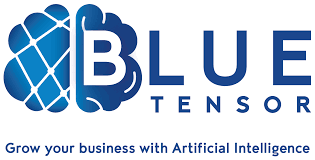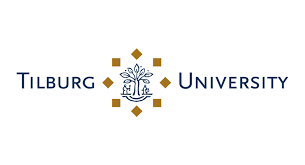 |
Quandela is a photonic quantum computing startup founded in 2017. Quandela develops and commercialise single-photon quantum light sources for use in quantum technologies. The focus also encompasses the development of their own quantum computing platform and the in-house R&D of algorithms protocols and applications for which our photonic technologies provide quantum advantage. Quandela has a diverse, international team combining leading scientists in the fields of optics, semiconductor nanotechnologies, the foundations of quantum theory, quantum information theory and quantum computing based at our facilities in Palaiseau and Massy in the Paris region. |
 |
Quantinuum is an independent quantum computing software company, with operations in US, Europe & Japan. Quantinuum builds tools for the commercialisation of quantum technologies whose long-term impact will be profound. Today, Quantinuum has 164 employees worldwide, representing 105 scientists and approximately 70 PhD recipients.
|
 |
BlueTensor is an Italian company specialised in the development of tailor-,made artificial intelligence solutions. The team is composed of 19 internal,resources, mainly graduated with a Master’s degree or a PhD. The company,works with three technologies: Computer Vision, Natural Language Processing and Predictive Analysis. The customisation of such technologies allows,the implementation of different kinds of solutions such as automated systems,for quality assurance (vision inspection), video surveillance applications, reasoning systems (Virtual Assistants), forecasting models and recommendation,engines.
|
 |
Arva builds and operates a stable and safe power supply for the development of society in Northern Norway. Arva is responsible for Northern Norway’s largest network area. Their power grid stretches for around 15,000 kilometers. The power grid is monitored 24/7 every day of the year and regardless of weather. Their power network has an uptime of 99.98 percent which means that most of customers hardly ever experience interruptions in the power supply. The future is electric and Arva has a central role in the electrification of society. With over 200 employees, ARVA is well equipped for the future, the constant development and electrification of Norwegians’ everyday lives. |
 |
HSBC Holdings plc is a British multinational universal bank and financial,services holding company. It is the largest bank in Europe by total assets ahead of BNP Paribas with US $2.953 trillion as of December 2021. HSBC Group Service (UK) Limited provides global functions, including research to,HSBC Holdings plc.
|
 |
Université Cote d’Azur (UCA) is a cluster bringing together the university and higher education institutions of the Cote d’Azur region. In 2016, UCA supported a project: UCAJEDI, which was selected as one of the eight French, Initiatives of Excellence (IDEX). Based on a model of a Graduate University, UCA encompasses an initial and ongoing training offer linked to fundamental and applied,research. UCA’s ambition is to promote original and innovative doctoral programmes that will attract the highest-level doctoral candidates and early-stage,researchers worldwide. UCA is also part of the “Ulysseus Alliance,” recently,selected by the European Commission to join the European Universities initiative. |
 |
The Department of Econometrics and Operations Research at Tilburg University is housed in the Tilburg School of Economics and Management (TiSEM).Tilburg University hosts roughly 13,000 students, and TiSEM is the oldest and largest school of Tilburg University. Currently, TiSEM offers six Bachelors,,fourteen Masters and two Research Master programs to approximately 5600 students, and employs some 470 people (400 FTE). The Department of Econometrics and Operations Research has approximately 40-50 staff members and,15-20 PhD students. Most researchers have a strong quantitative background,in mathematics and statistics. |
 |
With its roots dating back to the 13th century, Toulouse III – Paul Sabatier University (UT3) was officially founded in 1969 following the merger of the faculties of medicine, pharmacy and science. The diversity of its laboratories,and the quality of its courses in the fields of science, health, sport, technology and engineering have guaranteed its scientific influence over the last fifty years and have made it one of the best universities in the world. At UT3, research is organised into five committees: Materials Sciences; Mathematics, Information and Engineering Sciences and Technologies; Universe, Planets, Space, Environment; Biology, Agronomy, Biotechnology, Health; Human,& Social Sciences. Key academic research partners include Research Institutes (CNRS, INSERM, INRA, IRD), The University of Toulouse and its other founding members (Toulouse Capitole University, Toulouse Jean Jaures University, Toulouse INP, INSA Toulouse, ISAE-SUPAERO), CNES (National,Centre for Space Studies), ONERA (National Aerospace Research Centre),Meteo France (Weather Forecast Center), EFS (French Blood Institute), CEA,(Atomic Energy Commission). |
 |
Leipzig University which has been founded in 1409, today has about 30,000 students. There are 14 faculties, covering topics from medicine to natural, sciences, from mathematics to theology and from social sciences to sports.This variety enables each scientist to make use of the knowledge of more than 450 professors and hence to work in interdisciplinary projects. Significant,amounts of money have been invested in the research infrastructure so that Leipzig University is a top institution both in buildings and equipment today. Additionally to the public funding Leipzig University acquires some 150-200 million Euro of third-party funds annually. |
 |
The Universitat Politècnica de Catalunya BarcelonaTech (UPC) is a public institution of research and higher education in the fields of engineering, architecture, sciences and technology. Every year, more than 6,000 bachelor’s and master’s students and more than 500 doctoral students graduate. Since 2013 the UPC has endorsed the European Commission’s European Charter and Code for Researchers, two documents addressed to researchers as well as research employers and funders in both the public and private sectors are key elements in the EU’s policy to boost researchers’ careers. Moreover, in the,context of the Human Resources Strategy for Researchers (HRS4R), which supports the Charter, the UPC obtained (in July 2017) an official acknowledgment for HR Excellence in Research and was granted the certified logo of the,programme by the European Commission. |